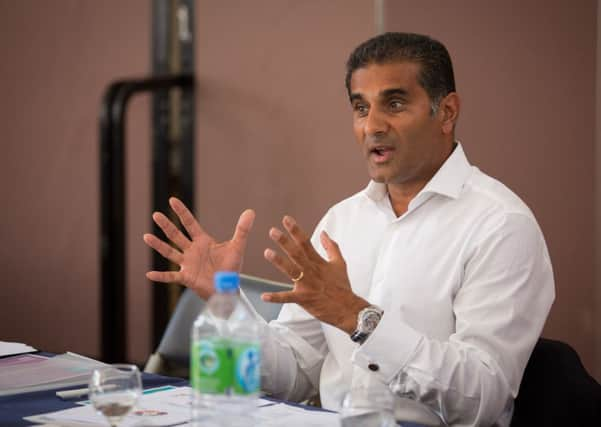‘Mini hospital’ may be a solution to Burgess Hill’s rapid population growth


Horsham and Mid Sussex Clinical Commissioning Group (CCG) met earlier this month to discuss key objectives with the public as housing numbers in the area increase.
Dr Ian Holwell, Horsham and Mid Sussex Locality Group and member of the governing body, suggested the possibility of turning Sydney West, on Leylands Road, Burgess Hill, into a mini hospital.
Advertisement
Hide AdAdvertisement
Hide AdHe said The Brow Medical Centre in Burgess Hill also had priority, as it desperately needed more space.
The group also discussed the possibility of expanding Silverdale Surgery, on Silverdale Road, Burgess Hill. as it was the only centre east of the railway.
Dr Holwell added: “This is the start of the conversation, nothing is absolutely nailed down.”
Steve Williams, member of Horsham and Mid Sussex CCG and programme director, said the plan was to expand GP practices and services and improve the health care centre in Haywards Heath.
Advertisement
Hide AdAdvertisement
Hide AdHe said the group wanted to develop the community hub role of the Princess Royal Hospital.
Mr Willams explained that the situation in Burgess Hill was complex as, with 4,000 new homes planned in the northern arc, some GPs would be able to cope and some would not.
The meeting included a Q&A session with the panel.
One resident questioned the CCG’s awareness of rural and urban areas in Mid Sussex.
Dr Minesh Patel, clinical chair of the governing body, said: “It’s not lost on us. We have quite a mixed population of urban and rural. There’s a challenge around transport and accessibility.”
Advertisement
Hide AdAdvertisement
Hide AdOne member of public, who said she had osteonecrosis and had been house-bound for eight months, said the ‘breaking of services’ and the number of people she had to speak to before she received sufficient care was ‘mind boggling’.
“If you’re house bound you can’t get to a meeting, we need to involve people at home.”
She asked: “What support is there?”
Dr Patel responded: “You encapsulate a number of issues, you encapsulate why we are sitting here. There is a proliferation of services, they’re fragmented.
“They are not built around people that need the care.
“It’s getting worse not better,” he added.
Dr Patel said in a normal day he dealt with many sufferers of long term diseases.
Advertisement
Hide AdAdvertisement
Hide AdHe said he often wrote a referral letter to do with diabetes or heart failure, six weeks later there would be an acknowledgement, then there had to be a referral before the patient could be seen.
“We need to get a way to get a response more dynamically. Technology needs to be more useful from an NHS perspective.”
Simon Chandler, the governing body’s deputy chair and lay member for patient and public engagement, said he appreciated that people wanted individual care rather than seeing a ‘big shiny hospital’ developed.
One member of public said: “If we aren’t careful we’ll have a time lag, people and practices will be under pressure, facilities won’t be available.”
Advertisement
Hide AdAdvertisement
Hide AdDr Patel responded: “Sorry it takes a long time to see a GP, we are aware of that.
“Here I am on a Wednesday afternoon when I could be seeing my patients.
“That’s how thinly the work force is spread.”
He explained that 20% of GPs were older than 55, so there was an aging work force as well as population, whilst demand for GPs was rising 4-7% nationally per annum.
Dr Patel said: “A heap of people are going to retire.
“We need to create a system of care which uses the skills of everybody. We do have a challenge.
Advertisement
Hide AdAdvertisement
Hide Ad“We’re trying to take a diligent approach by using existing resources more effectively.
“The NHS is very clear they don’t have any more money to spend on general practice.”
Regular health checks were discussed, as one lady explained she has been refused general health checks as she was too old.
She said: “I want to get myself right now rather than when I become ill and cost the NHS a whole lot more.”
Advertisement
Hide AdAdvertisement
Hide AdDr Patel said he had the arguably ‘controversial’ view that standardised checks were a ‘waste of resources’.
He explained: “It’s a sausage machine health plan.
“There isn’t much evidence to support these kinds of checks.”
What do you think?
Email middy.news@jpress,co.uk with your views and opinions.